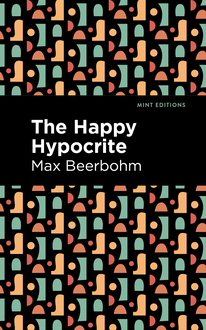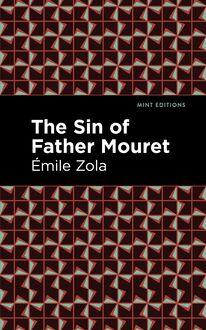-
 Univers
Univers
-
 Ebooks
Ebooks
-
 Livres audio
Livres audio
-
 Presse
Presse
-
 Podcasts
Podcasts
-
 BD
BD
-
 Documents
Documents
-
- Cours
- Révisions
- Ressources pédagogiques
- Sciences de l’éducation
- Manuels scolaires
- Langues
- Travaux de classe
- Annales de BEP
- Etudes supérieures
- Maternelle et primaire
- Fiches de lecture
- Orientation scolaire
- Méthodologie
- Corrigés de devoir
- Annales d’examens et concours
- Annales du bac
- Annales du brevet
- Rapports de stage
La lecture à portée de main

Vous pourrez modifier la taille du texte de cet ouvrage
Découvre YouScribe en t'inscrivant gratuitement
Je m'inscrisDécouvre YouScribe en t'inscrivant gratuitement
Je m'inscrisEn savoir plus
Vous pourrez modifier la taille du texte de cet ouvrage
En savoir plus

Description
Adolphe is just past the his coming-of-age, but has a much more room to grow. As the son of a government official, Adolphe has a privilege of comfortable wealth and access to a good education, however, he feels trapped in routine, boredom, and a bleak world. Shaped by his childhood, Adolphe has a melancholy outlook on life, turning him into an introverted young man. After he graduates from college, Adolphe struggles to find fulfillment, so he travels to Germany for an adventure. There, he feels overwhelmed and displeased by the stupidity he perceives from society, earning him a reputation for an unpleasant wit. While he is just looking for fun, Adolphe meets Ellénore, a thirty-two-year-old polish refugee. Though she has a husband and two kids, Adolphe is enamored by her. As if it were a game, Adolphe is dedicated to seducing Ellénore, but soon finds himself deeply in love with her. They engage in an illicit affair, riddled with jealousy, secrets, and lust. Despite these qualities, and that Ellénore is ten years older than Adolphe and married, they share a significant love for each other. However, they are quickly shunned from society when their affair is made public, causing Adolphe to worry that their relationship could affect his future endeavors. When Ellénore makes the sacrifice of leaving her family behind to fully commit to him, Adolphe must decide if he is willy to do the same for her.
When Adolphe was first released in 1816, it invited controversy due to the resemblance to Benjamin Constant’s own romantic affairs. Since then, Benjamin Constant’s Adolphe piques readers interests with its passionate romance and complicated protagonist. Adolphe’s indecisive immaturity invokes strong emotions from audiences, both sympathetic and critical. With elements of a coming-of-age story and philosophical observations, this romantic novel appeals to a wide range of audiences, engaging readers with its eclectic genre and themes that prove to still be relatable to a contemporary audience.
This edition of Benjamin Constant’s Adolphe is perfect for a modern reader. With an eye-catching cover design and a stylish font, Adolphe by Benjamin Constant has been restored for the 21st century.
Sujets
Informations
| Publié par | Mint Editions |
| Date de parution | 08 décembre 2020 |
| Nombre de lectures | 1 |
| EAN13 | 9781513274430 |
| Langue | English |
| Poids de l'ouvrage | 1 Mo |
Informations légales : prix de location à la page 0,0300€. Cette information est donnée uniquement à titre indicatif conformément à la législation en vigueur.
Extrait
Adolphe
Benjamin Constant
Adolphe was first published in 1816.
This edition published by Mint Editions 2021.
ISBN 9781513269436 | E-ISBN 9781513274430
Published by Mint Editions®
minteditionbooks .com
Publishing Director: Jennifer Newens
Design & Production: Rachel Lopez Metzger
Typesetting: Westchester Publishing Services
C ONTENTS I II III IV V VI VII VIII IX X L ETTER TO THE E DITOR R EPLY
I
I had just finished my studies at the University of Gottingue. The intention of my father, Minister of the Elector of **, was that I traveled through the most remarkable countries of Europe. He then wanted to call me to him, make me enter the department whose management was entrusted to him, and prepare to replace it someday. I had obtained, by a job quite stubborn, in the midst of a very dissipated life, successes which had distinguished me from my fellow students, and who had made conceive of my father’s probably strong hopes for me exaggerated.
These hopes had made him very indulgent to many mistakes I had made. He never let me suffer consequences of these faults. He had always granted, sometimes warned, my requests in this regard.
Unfortunately his conduct was rather noble and generous than tender. I was imbued with all his rights to my gratitude and to my respect. But no trust had ever existed between we. He had in his mind something ironic that did not suit my character. I was just asking myself deliver to those primitive and fiery impressions that throw soul outside the common sphere, and inspire in it the disdain of all the surrounding objects. I found in my father, no not a censor, but a cold and caustic observer, who first smiled with pity, and who soon ended the impatient conversation. I don’t remember during my first eighteen years, of ever having had a hour with him. His letters were affectionate, full of advice, reasonable and sensitive; but hardly were we in presence of each other that there was something in him forced that I could not explain myself, and who reacted on me in a painful way. I didn’t know then what it was shyness, this inner suffering that pursues us until in the most advanced age, which pushes back on our heart the deepest impressions, which chills our words, which everything we try to say in our mouths distorts, and allows us to express ourselves only in vague words or a more or less bitter irony, as if we wanted revenge on our very feelings of the pain we experience at not being able to make them known. I did not know that, even with his son, my father was shy, and that often, after waiting a long time from me some expressions of affection that his apparent coldness seemed to forbid me, he left my eyes wet with tears and complained to others that I didn’t like him.
My constraint with him had a great influence on my character. As shy as him, but more restless, because I was more young, I got used to enclosing within myself all that I experienced, to form only solitary plans, to count than on me for their execution, to consider opinions, interest, assistance and until the mere presence of others as a embarrassment and as an obstacle. I got into the habit of never talk about what was occupying me, not to submit to the conversation as to an unwelcome necessity and then to animate it by a perpetual joke which made it less tiring to me, and which helped me hide my true thoughts. From there a certain absence of abandonment that my friends still reproach me with today, and a difficulty in causing seriously that I still find it difficult to overcome. At the same time there resulted a burning desire independence, a great impatience for the bonds with which I was surrounded, an invincible terror of forming new ones. I do not was at my ease that all alone, and such is even now the effect of this disposition of soul that, in the circumstances less important, when I have to choose between two parties, the human figure troubles me, and my natural movement is to run away from it to deliberate in peace. However, I did not have the depth selfishness that such a character seems to announce: while not only interested in myself, I was weakly interested in myself. I had deep in my heart a need for sensitivity that I do not did not notice me, but who, finding nothing to be satisfied, successively detached from all the objects which in turn attracted my curiosity. This indifference to everything was still strengthened by the idea of death, idea that struck me very young, and on which I have never conceived that men get stunned so easily. I had seen at the age of seventeen die an elderly woman, whose spirit, of a remarkable turn and weird, had started to develop mine. This woman, like so many others, at the start of his career, he launched towards the world, which she did not know, with the feeling of great strength of soul and really powerful faculties. Like so much others too, failing to comply with artificial conveniences, but necessary, she had seen her disappointed hopes, her youth pass without pleasure; and old age finally had it reached without submitting it. She lived in a nearby castle of one of our lands, discontented and withdrawn, having only his mind as a resource, and analyzing everything with his mind. For nearly of a year, in our inexhaustible conversations, we had envisioned life in all its aspects, and death always as the end of all; and after having caused so much death with her, I had seen death strikes her in my eyes.
This event had filled me with a feeling of uncertainty about the destiny, and a vague reverie that never left me. I read preferably in the poets what reminded the brevity of human life. I found no goal was worth it of no effort. It is rather strange that this impression is is weakened precisely as the years have passed accumulated on me. Could it be because there is hope something doubtful, and that when it withdraws from the career of man, this career takes on a more severe, but more positive? Could it be that life seems so much more real than all illusions disappear, like the peak rocks appear better on the horizon when the clouds dissipate?
I went, on leaving Gottingue, to the small town of D **. This city was the residence of a prince who, like most of those of Germany, ruled gently a country of few of expanse, protected the enlightened men who came to settle there, allowed all opinions a perfect freedom, but which, limited by the old custom to the society of its courtiers, thus gathered around him only men in large insignificant or mediocre part. I was welcomed in this court with the curiosity naturally inspired by any foreigner who breaks the circle of monotony and etiquette. during a few months I did not notice anything that could capture my attention. I was grateful for the kindness shown to me; But sometimes my shyness prevented me from enjoying it, sometimes fatigue of aimless agitation made me prefer solitude to tasteless pleasures that I was invited to share. I had no hatred against anyone, but few people inspired me to interest; but men are hurt by indifference, they attribute it to malice or affectation; they don’t want not believe that we are bored with them, of course. Sometimes I sought to constrain my boredom; I took refuge in a Profound taciturnity: this taciturnity was taken for disdain. Other times, tired of my silence myself, I let myself go to a few jokes, and my mind set in motion, dragged me beyond measure. I revealed in one day all the ridiculous that I had observed during a month. Confidants of my sudden and involuntary effusions knew nothing of me willing and were right; because it was the need to talk that grabbed, not confidence. I had contracted in my conversations with the woman who was the first to develop my ideas an insurmountable aversion to all common maxims and for all dogmatic formulas. So when I heard mediocrity to speak with complacency on good principles established, quite indisputable in terms of morals, conveniences or of religion, things she quite willingly puts on the same line, I felt compelled to contradict her, not that I had took opposing views, but because I was impatient of a conviction so firm and so heavy. I don’t know what instinct warned me, moreover, to mistrust these general axioms if free from all restriction, so pure of all nuance. The idiots make of their morals a compact and indivisible mass, for that she interferes as little as possible with their actions and leaves them free in all details.
I soon gave myself, by this conduct a great reputation of lightness, mockery, wickedness. My bitter words were considered evidence of a hateful soul, my jokes like attacks on all that there was more respectable. Those I had made the mistake of making fun of found it convenient to make common cause with the principles that they accused me of calling into question: because without the wanting I had made them laugh at the expense of each other, all gathered against me. One would have said that by pointing out their ridiculous, I betrayed a confidence they had made to me. We would have said that by showing themselves to me as they were, they had obtained from me the promise of silence: I had not the awareness of having accepted this too expensive treaty. They had found pleasure in giving oneself a wide career: I found observe and describe them; and what they called a perfidy to me seemed quite innocent and very legitimate compensation.
I do not want to justify myself here: I have long since renounced that frivolous and easy use of an inexperienced mind; I want simply say, and that for others than for me who am now out of the world, that it takes time to get used to the human species, such as interest, affectation, vanity, fear made it to us. Astonishment of early youth, to the aspect of a society so artificial and so worked, announces rather a natural heart than a wicked mind. This society, moreover, has nothing to fear. She weights so much on us, his dull influence is so powerful, that i
Attention
En entrant sur cette page, vous certifiez :
- 1. avoir atteint l'âge légal de majorité de votre pays de résidence.
- 2. avoir pris connaissance du caractère érotique de ce document.
- 3. vous engager à ne pas diffuser le contenu de ce document.
- 4. consulter ce document à titre purement personnel en n'impliquant aucune société ou organisme d'État.
- 5. vous engager à mettre en oeuvre tous les moyens existants à ce jour pour empêcher n'importe quel mineur d'accéder à ce document.
- 6. déclarer n'être choqué(e) par aucun type de sexualité.
YouScribe ne pourra pas être tenu responsable en cas de non-respect des points précédemment énumérés. Bonne lecture !
-
 Univers
Univers
-
 Ebooks
Ebooks
-
 Livres audio
Livres audio
-
 Presse
Presse
-
 Podcasts
Podcasts
-
 BD
BD
-
 Documents
Documents
-
Jeunesse
-
Littérature
-
Ressources professionnelles
-
Santé et bien-être
-
Savoirs
-
Education
-
Loisirs et hobbies
-
Art, musique et cinéma
-
Actualité et débat de société
-
Jeunesse
-
Littérature
-
Ressources professionnelles
-
Santé et bien-être
-
Savoirs
-
Education
-
Loisirs et hobbies
-
Art, musique et cinéma
-
Actualité et débat de société
-
Actualités
-
Lifestyle
-
Presse jeunesse
-
Presse professionnelle
-
Pratique
-
Presse sportive
-
Presse internationale
-
Culture & Médias
-
Action et Aventures
-
Science-fiction et Fantasy
-
Société
-
Jeunesse
-
Littérature
-
Ressources professionnelles
-
Santé et bien-être
-
Savoirs
-
Education
-
Loisirs et hobbies
-
Art, musique et cinéma
-
Actualité et débat de société
- Cours
- Révisions
- Ressources pédagogiques
- Sciences de l’éducation
- Manuels scolaires
- Langues
- Travaux de classe
- Annales de BEP
- Etudes supérieures
- Maternelle et primaire
- Fiches de lecture
- Orientation scolaire
- Méthodologie
- Corrigés de devoir
- Annales d’examens et concours
- Annales du bac
- Annales du brevet
- Rapports de stage















